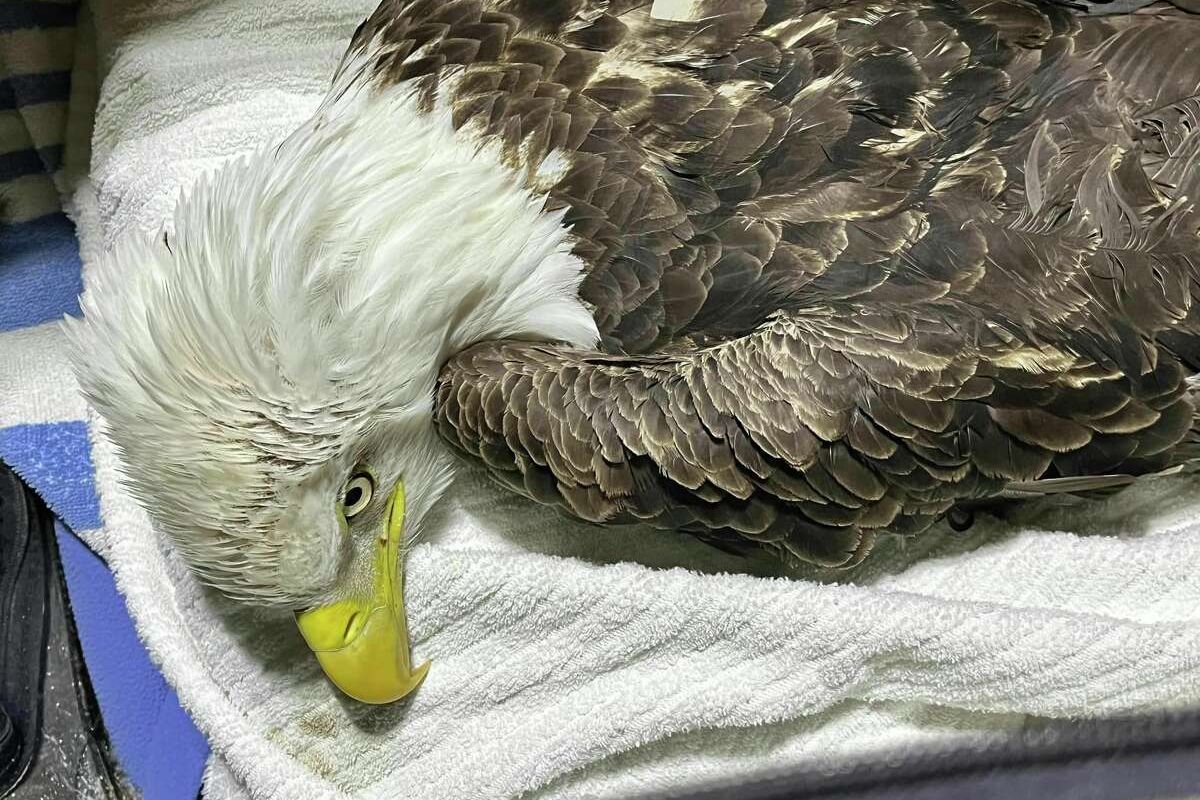Test results have confirmed the CT bald eagle that died on March 27 was poisoned by brodifacoum and difethialone, which are second-generation anticoagulants used to kill mice and rats but all too often prove deadly to the raptors, foxes and other predators who consume rodents that have ingested the toxic poisons.
“This result is what we anticipated and only solidifies the need for Connecticut to ban the sale and use of SGARS. CT is facing a second ‘Silent Spring’ because of rodenticides,” said Priscilla Feral, president of Friends of Animals. “Bald eagles were only taken off the Endangered Species List in 2007. The use of the pesticide DDT was a major factor in its decline. Now our national bird is being poisoned by these rodenticides.”
A Place Called Hope Wildlife Rehabilitation Center in Killingworth, which tried to save the eagle, has been overwhelmed by the aftermath of SGARS and has been submitting specimens of red-tailed hawks, barred owls, great-horned owls, Cooper’s hawks and other birds to UConn for testing. One or more of the SGARS ingredients have been detected in 45 out of 54 specimens recently submitted for anticoagulant panel testing.
FoA and its allies throughout Connecticut are championing legislation that would ban the use and sale of SGARS in the state. We need CT residents to help get second-generation anticoagulant rodenticides banned in Connecticut.
Please contact your state senators and representatives and tell them to support SB962 with a strengthening amendment that would put a two-year moratorium on the use, application, sale and distribution of SGARS in CT to allow CT DEEP and our state’s wildlife rehabbers to continue to study their deadly effects on non-target wildlife. You can find your legislators here.
CT’s largest wildlife rehabilitator, Wildlife in Crisis, estimates that every year at least 100 birds and 40 foxes die in their care from SGARS. They all arrive convulsing and bleeding without external trauma. The deaths are heartbreaking to watch.
Harming and killing the natural predators who regulate rodent populations will never be the solution and makes no sense for CT. The best line of defense is always exclusion and sanitation.
Well-heeled chemical industry lobbyists are telling legislators there will be a public health crisis without SGARS. That’s a lie. There have been no rodent outbreaks in California or British Columbia since 2021 when their moratoriums or bans went into effect.

